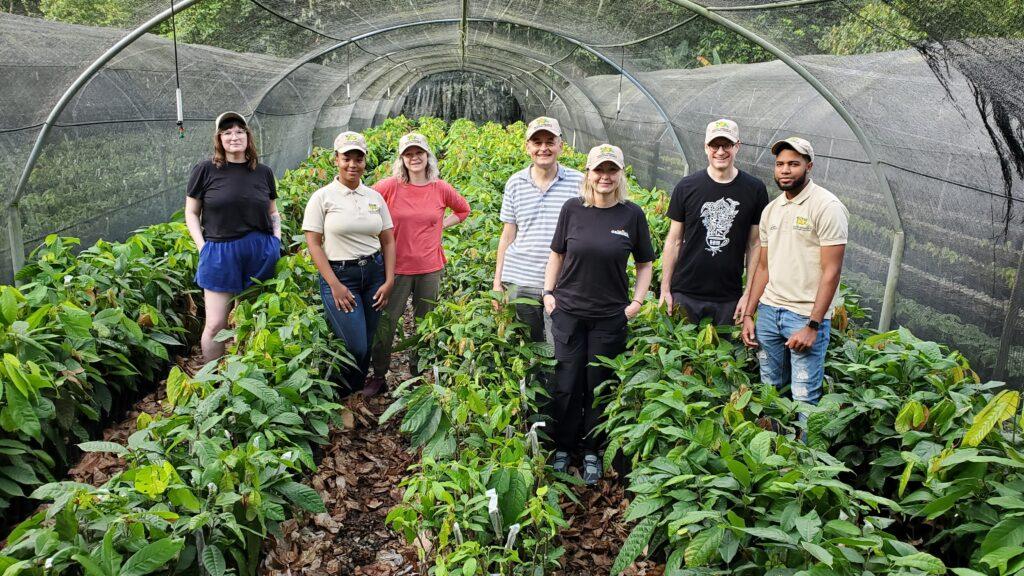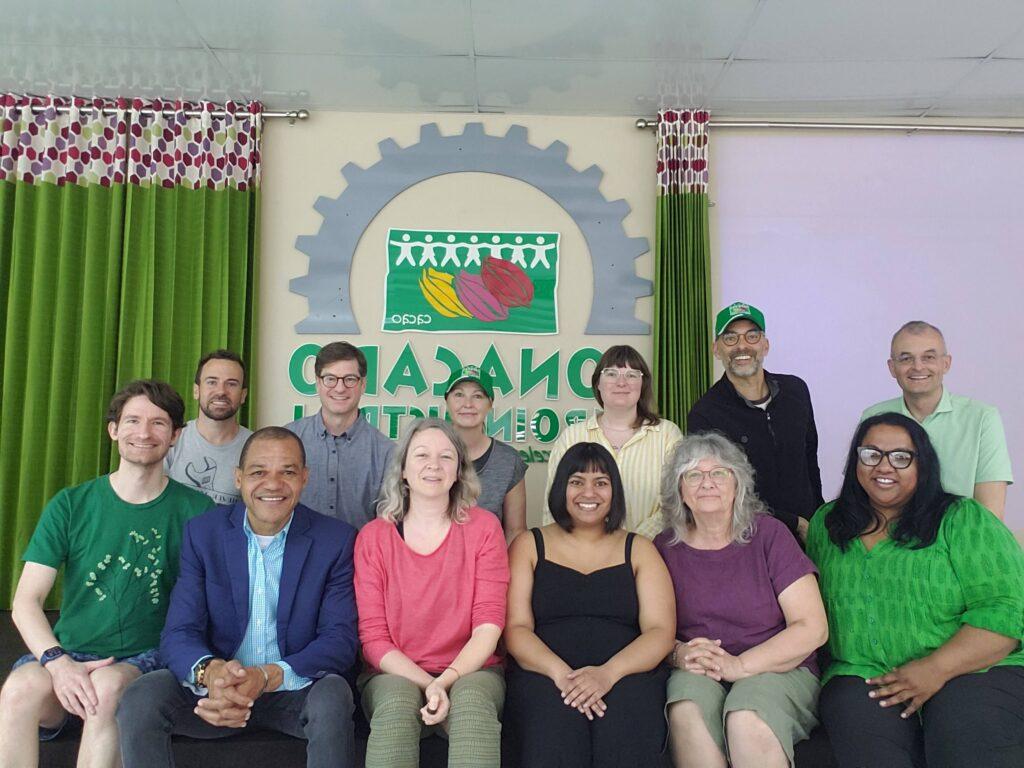Interview with Josiane Paquet and Martin Van Den Borre of La Siembra Co-op
by Shannon Devine of La Siembra Co-op
January 31st 2017
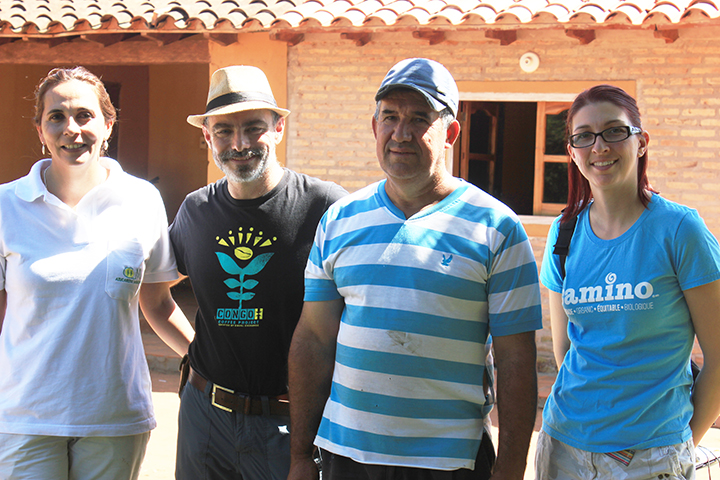
1. You recently visited Cooperativa Manduvirá, our long-standing sugar producer partner in Arroyos y Esteros, Paraguay. Can you give a brief summary of La Siembra Co-op’s history with Manduvirá?
Martin: We have worked with Manduvirá since the early 2000s and have seen them evolve from a sugar cane grower cooperative to a world class industrial cooperative that now has full control and traceability over its production and its marketing. In an industry where the power dynamics are never in favor of small farmers, their vision to one day run their own sugar mill seemed out of reach if not impossible to many. The tenacity, patience and dedication that this large group of family farmers demonstrated is simply remarkable. In tonnage Manduvirá co-op now represents the majority of our ingredient purchases. To this day, La Siembra remains Manduvirá’s largest North American client.
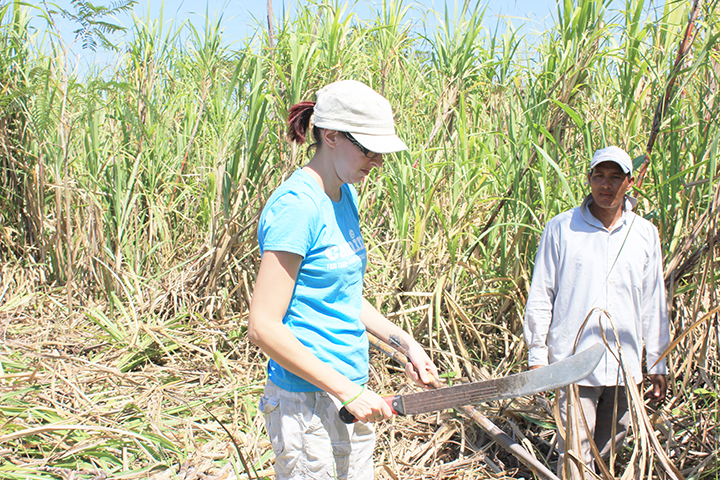
2. In 2016, La Siembra Co-op paid just over $40,000 in fair trade premiums to Manduvirá. Can you provide us with a few examples of how these premiums are currently being used?
Martin: Since sugar pricing slightly decreased in 2016 and the co-op is now able to finance its projects through its operations, Manduvirá decided to dedicate the majority of their premiums to sustaining farm gate prices for their farmers. Traditionally premiums have gone towards such initiatives as medical and dental services, uniforms and school supplies for farmers’ families, crop diversification, and technical support through agricultural training. Premiums have also funded their local radio show which keeps farmers connected to what is happening at the governance level of the co-op and also offers educational programming. Of course, over the years social premiums have been key to building the co-operative’s financial ability to take on the construction of the sugar mill.
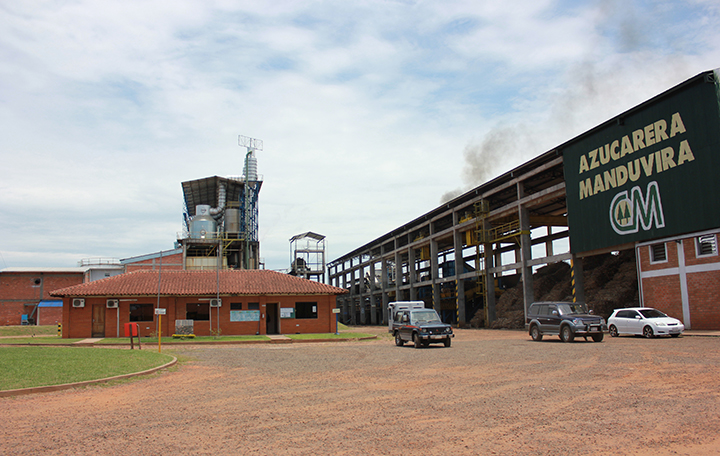
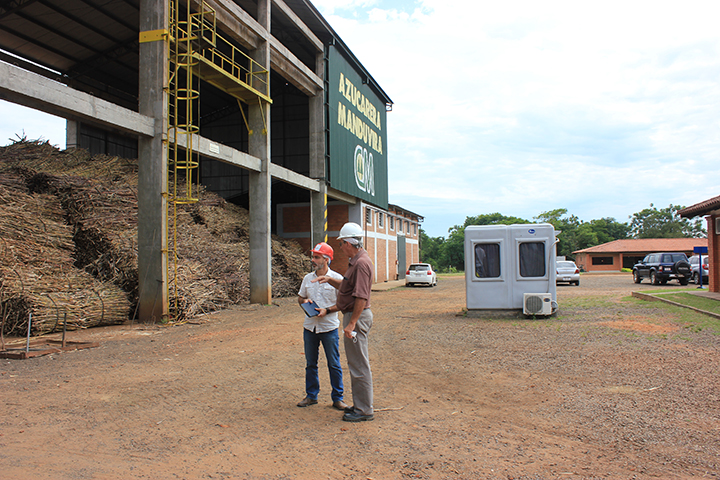
3. Manduvirá has recently invested in several innovations projects. Can you describe some of the work they are doing to better meet the needs of their international clients?
Martin: Manduvirá has recently invested in a modern quality control lab that employs a dozen people. Their staff constantly monitors the quality of the cane, cane juice and finished product as it flows through the factory to ensure the highest quality standards are met. This work was recognized this year in Switzerland where they won a prestigious National award for the quality of their products. They also have very inspiring projects at the agronomical level such as the bio-active composting factory which will allow them to make custom fertilizers for various soil types.
Josiane: There are a number of projects currently underway including a new dryer system that will help reduce the humidity level of the sugar (which would in turn reduce the incidence of hardened sugar), a lab that will produce microorganisms which will be used to make compost, and finally a retail packaging plant.
4. You met with Eulogio Serracho and his wife Olga Salvioni during your time in Paraguay. What surprised you most about how fair trade has impacted their lives as well as the lives of other family farmers?
Josiane: What surprised me the most was that the farmers are not only cultivating sugar cane on their land, but many also grow large vegetable gardens. They sell their vegetables at the local market as a source of income when they are not harvesting sugar cane. Typically they will harvest their vegetable crops at 4am and by 10am everything is sold!
I was also very surprised to witness the go-getter mentality of the members of the co-op. They always have projects on the go and never fail to follow through.
5. Tell us about your favourite part of this trip? What was most inspiring?
Josiane: I felt very inspired by Andrés, the General Manager of Manduvirá. He really is the engine of the co-op. He started off as a sugar producer and 25 years later he now runs an industrial sugar mill and works with over 950 producers. Andrés took us by boat to where he used to live (which is now his uncle’s home) and showed us the Manduvirá tree which grows right in the middle of a lake created by the overflow of a river. The tree is very symbolic to the co-op, which was named after it. It is a symbol of great resilience, as it stands strong in periods of flooding just as the farmers remained incredibly resilient during their “quiet revolution” when they denounced the abuses of the sugar mills they used to sell their cane to.
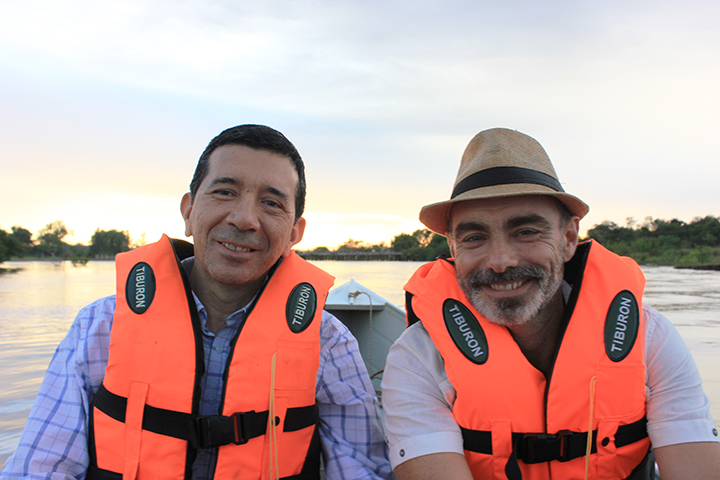
Martin: After so many years of seeing our producer partners work tirelessly towards the realization of their dream, visiting the sugar mill was a very touching moment. It was very inspiring to see the pride in the farmers’ eyes when they were delivering the cane to the co-op or hearing them talk of their pride in seeing their children work as technicians, or operators after having had the chance to study accounting, agronomy, business or food science. This is a completely new reality for these communities!
6. Why is it important for you to participate in trips to origin? And how have these experiences affected your attitude towards your day-to-day job?
Josiane: Producer trips bring me extra motivation. Sitting at my desk, it’s easy to say we help farmers, but seeing it in person makes it more real. Hearing firsthand about how the co-op came to own its own sugar mill and all the effort that was put into making this dream become a reality really inspires me.
Martin: It’s important for us as members of our own co-op to understand the reality of our producer partners and to strengthen our relationships. These visits are also important to us operationally. Right now we are working on a project that will have Manduvirá producing packaged goods for us in the near future and we are also evaluating some new products. It always reenergizes us to visit our farmer partners. Personally it makes things more real.
7. Describe a moment during your trip that made you smile.
Martin: It made me smile to see the farmers deliver their sugar cane with wooden carts pulled by oxen’s, while trucks were pulling container loads of sugar out of the factory’s yard.
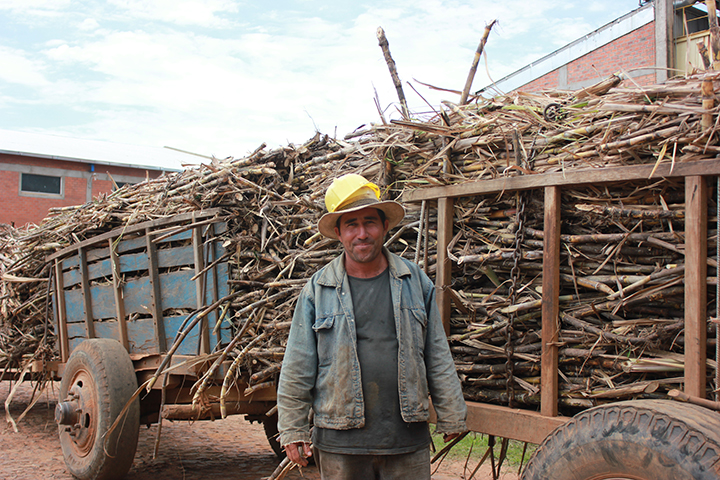
Josiane: When I was standing in front the plant with Andrés, I said to him “It’s amazing what you have built. You started out as a sugar farmer and two decades later look at what you’ve built! Did you ever imagine this would be possible?” He replied: “It started with a dream, a vision. I have realized that dream and now I want to make it bigger!” There was so much pride in his eyes.
